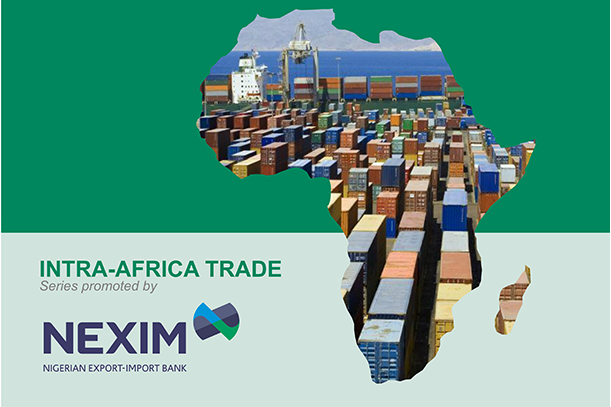How to make your own luck in emerging markets

Feature Highlight
Tolaram integrated all the necessary operations into its business to ensure not just that it made a good product, but that the new market it had created supported its success.
“Build a better mousetrap,” a popular saying goes, “and the world will beat a path to your door.” Unfortunately, it isn’t that simple for many businesses in emerging economies.
Constructing a successful business from the ground up can be a daunting task anywhere, but innovators in many emerging markets frequently face a particularly steep uphill battle. Hurdles such as unreliable suppliers and distributors, government corruption, or poor infrastructure introduce variables that often seem beyond anyone’s control. An entrepreneur might, for example, expend a great deal of effort creating an excellent product, only to find that she doesn’t have a reliable network of distributors to get it into the hands of customers.
Obstacles like these are undoubtedly intimidating, yet our study of successful innovators in low- and middle-income economies across the globe has uncovered a commonality: rather than waiting for external circumstances to become favourable, successful innovators make their own luck.
Every mousetrap needs a market
A particularly illustrative example of this phenomenon is Tolaram, the company responsible for the wildly popular Indomie instant noodles sold throughout Nigeria and West Africa. When Tolaram sold its first instant noodle packs in Nigeria in 1988, the country was under military rule and 78% of its population lived on less than two dollars a day. It hardly seemed like a likely place for a new venture to succeed.
As might be expected, Tolaram’s executives ran into many problems associated with the unpredictabilities of Nigeria’s economy. The product was good – a pack of noodles took three minutes to prepare and could contribute to a low-cost meal – but Tolaram faced many obstacles getting it into the hands and stomachs of potential customers. Manufacturing required electricity, waste management, and clean water, which were difficult to find consistently throughout the country. The path from factory to customer was fraught with obstacles such as theft and inconsistent logistics and distribution operations. Even finding employees with the right training to support business operations proved difficult.
Executives at the company could easily have given up in the face of so many complications, but instead they decided to create their own luck by building solutions to these problems. Rather than waiting for the government to provide necessary infrastructure, like power generation, waste management, and sanitation, Tolaram integrated them into its internal business operations. It created its own logistics business to overcome the failures of the conventional distribution system. It began training employees in finance, electrical engineering, and other relevant disciplines. In short, Tolaram integrated all the necessary operations into its business to ensure not just that it made a good product, but that the new market it had created supported its success.
A carton of Indomie noodles
From noodles to prosperity
In the years since, not only have Indomie noodles become highly popular, but Tolaram’s integrated business operations have become additional profit engines for the company. 65% of Tolaram’s logistics business revenues come from external clients who hire them to distribute their products. What’s more, these integrated business operations have created thousands of jobs that didn’t exist before, and have built needed infrastructure to support the economy as a whole, creating a ripple effect of prosperity that has affected the lives of many people in Nigeria and beyond.
Tolaram’s story isn’t unique. Local circumstances dictate exactly which operations companies in various emerging markets will need to integrate into their business models, but it’s [also] clear that, in order to succeed, innovators must think about the vitality of the entire market, not just the quality of their products. Entrepreneurs need to ask themselves which essential components of a successful new market are missing or unreliable, and then they must consider how to integrate their business operations to control for that unpredictability.
Building a successful company in an emerging market requires a lot of things to go right beyond simply building a good product. But if entrepreneurs are deliberate in thinking about what it will take to create a functioning new market, they won’t need to risk leaving success up to chance.
Lincoln Wilcox is a research associate at the Christensen Institute, where he researches ways in which individuals, businesses, governments, and development organizations can create prosperity in low-income countries and communities.
The Intra-Africa Trade series is promoted by Nigerian Export-Import Bank (NEXIM Bank). The opinion here is that of the author and not of NEXIM Bank.
Previous article under the series:
Can Nigeria benefit from African free trade?
Other Features
-
How much is a $100 Steam Gift Card in naira today?
2026 Complete Guide to Steam Card Rates, Best Platforms, and How to Sell Safely in Nigeria.
-
Trade-barrier analytics and their impact on Nigeria’s supply ...
Nigeria’s consumer economy is structurally exposed to global supply chain shocks due to deep import dependence ...
-
A short note on assessing market-creating opportunities
We have researched and determined a practical set of factors that funders can analyse when assessing market-creating ...
-
Rethinking inequality: What if it’s a feature, not a bug?
When the higher levels of a hierarchy enable the flourishing of the lower levels, prosperity expands from the roots ...
-
Are we in a financial bubble?
There are at least four ways to determine when a bubble is building in financial markets.
-
Powering financial inclusion across Africa with real-time digital ...
Nigeria is a leader in real-time digital payments, not only in Africa but globally also.
-
Analysis of NERC draft Net Billing Regulations 2025
The draft regulation represents a significant step towards integrating renewable energy at the distribution level of ...
-
The need for safeguards in using chatbots in education and healthcare
Without deliberate efforts the generative AI race could destabilise the very sectors it seeks to transform.
-
Foundation calls for urgent actions to tackle fake drugs and alcohol
Olajide Olutuyi, Executive Director, Samuel Olutuyi Foundation, warns: “If left unchecked, the ‘death ...
Most Popular News
- NDIC pledges support towards financial system stability
- Artificial intelligence can help to reduce youth unemployment in Africa – ...
- Africa needs €240 billion in factoring volumes for SME-led transformation
- ChatGPT is now the most-downloaded app – report
- CBN licences 82 bureaux de change under revised guidelines
- Green economy to surpass $7 trillion in annual value by 2030 – WEF












